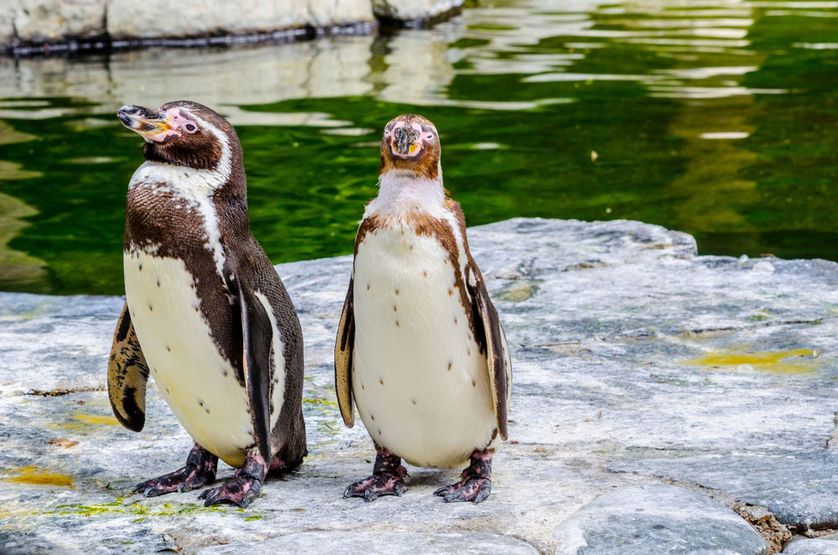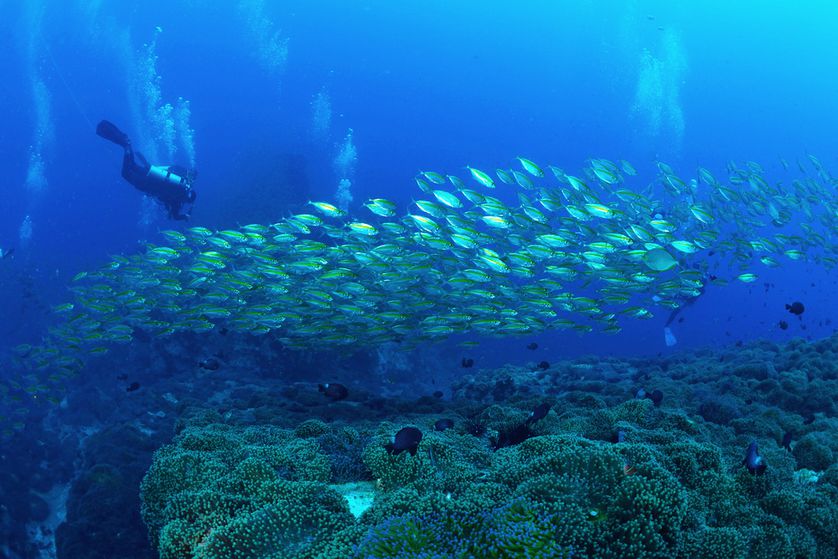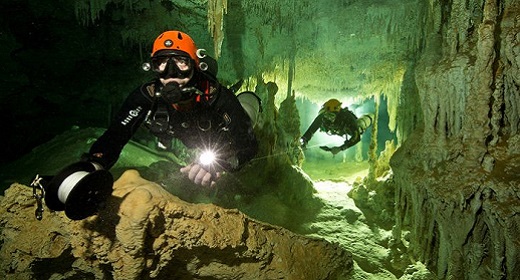by Christian Cotroneo: Try to imagine the future as a tale of two oceans…
“We have a narrow window of opportunity to deliver a healthy ocean to our grandchildren, and we have the knowledge and tools to do so,” Carlos Duarte, the professor at King Abdullah University of Science and Technology in Saudi Arabia who led the review, tells The Guardian. “Failing to embrace this challenge, and in so doing condemning our grandchildren to a broken ocean unable to support good livelihoods is not an option.”
The report, published this week in the journal Nature, suggests oceans may be a lot more resilient than we think. And if we take decisive action now, they could be in a healthy, life-sustaining state again by 2050.
Not all areas of the ocean are hurting, and some areas have benefitted greatly from conservation efforts, but there is work to be done. (Photo: think4photop/Shutterstock)
But urgency is key. The oceans, scientists argue, need us to undo the damage we’ve caused, starting now.
Otherwise, future generations will only know the tragic tale of the “other” ocean. That’s the one that sees water temperatures continue to rise, pollution and acidity levels choke marine life — and coastlines, along with the communities that live near them, overwhelmed.
Currently, as scientists warned in a previous study, sea levels are rising faster than they have in at least the last 3,000 years.
“We are at a point where we can choose between a legacy of a resilient and vibrant ocean or an irreversibly disrupted ocean,” Duarte notes in a statement.
Sure, some of those changes needed will take a grand, global effort. Governments need to get on the same page for major issues. Vast stretches of ocean need international coordination to protect. The same goes for reining in pollution. Not to mention the bane of all sea life — out-of-control industrial fishing operations that turn oceans into biological deserts.
 Humboldt penguins face threats from ocean acidification and overfishing. Other marine creatures face similar obstacles. (Photo: trabantos/Shutterstock)
Humboldt penguins face threats from ocean acidification and overfishing. Other marine creatures face similar obstacles. (Photo: trabantos/Shutterstock)
And none of that, the review authors note, will come cheaply. The cost to bring oceans back from the brink could run as high as $20 billion — and that, they estimate, would only protect about 50 percent of the waters. Still, considering how many human lives and economies rely on the ocean, the investment would be repaid 10-fold.
Besides, plenty of signs suggest even small efforts are making a major impact on ocean health. Developing mangroves and salt marshes along coasts, the review notes, has already noticeably reduced the amount of carbon dioxide that slips into the sea. Such developments also provide some protection for communities against rising sea levels.
What’s more, the review notes, the fishing industry is slowly becoming more sustainable. Destruction of crucial habitats for marine life — seagrass and mangroves — has almost stopped completely or been restored.
The researchers also point out that since the commercial hunting of humpback whales ended in the Southwest Atlantic, their population has surged from the brink of extinction to around 40,000 today.
“Overfishing and climate change are tightening their grip, but there is hope in the science of restoration,” Callum Roberts, a professor at the University of York who served on the review’s international team, tells The Guardian.
“One of the overarching messages of the review is, if you stop killing sea life and protect it, then it does come back. We can turn the oceans around and we know it makes sense economically, for human well-being and, of course, for the environment.”





















































